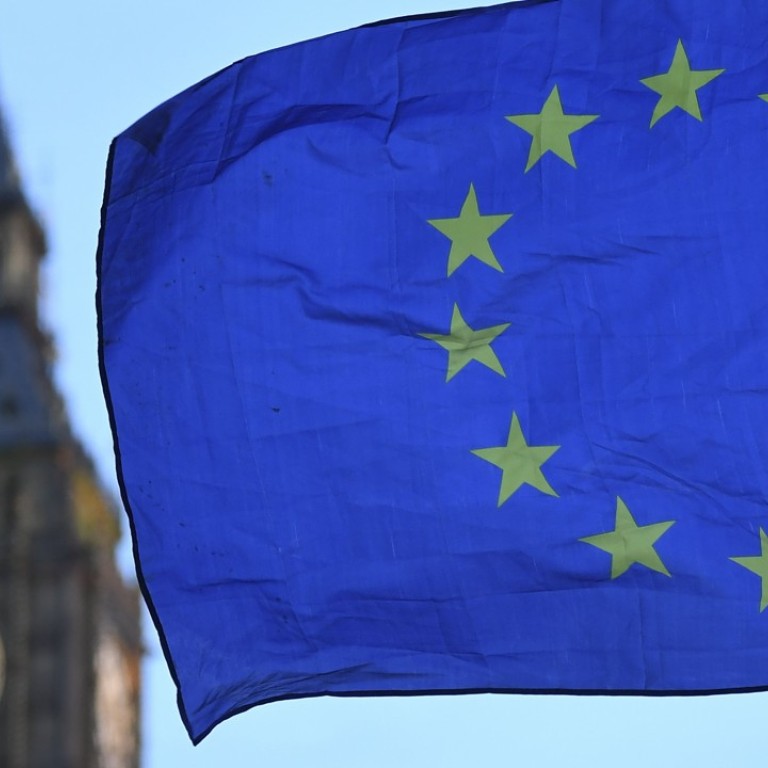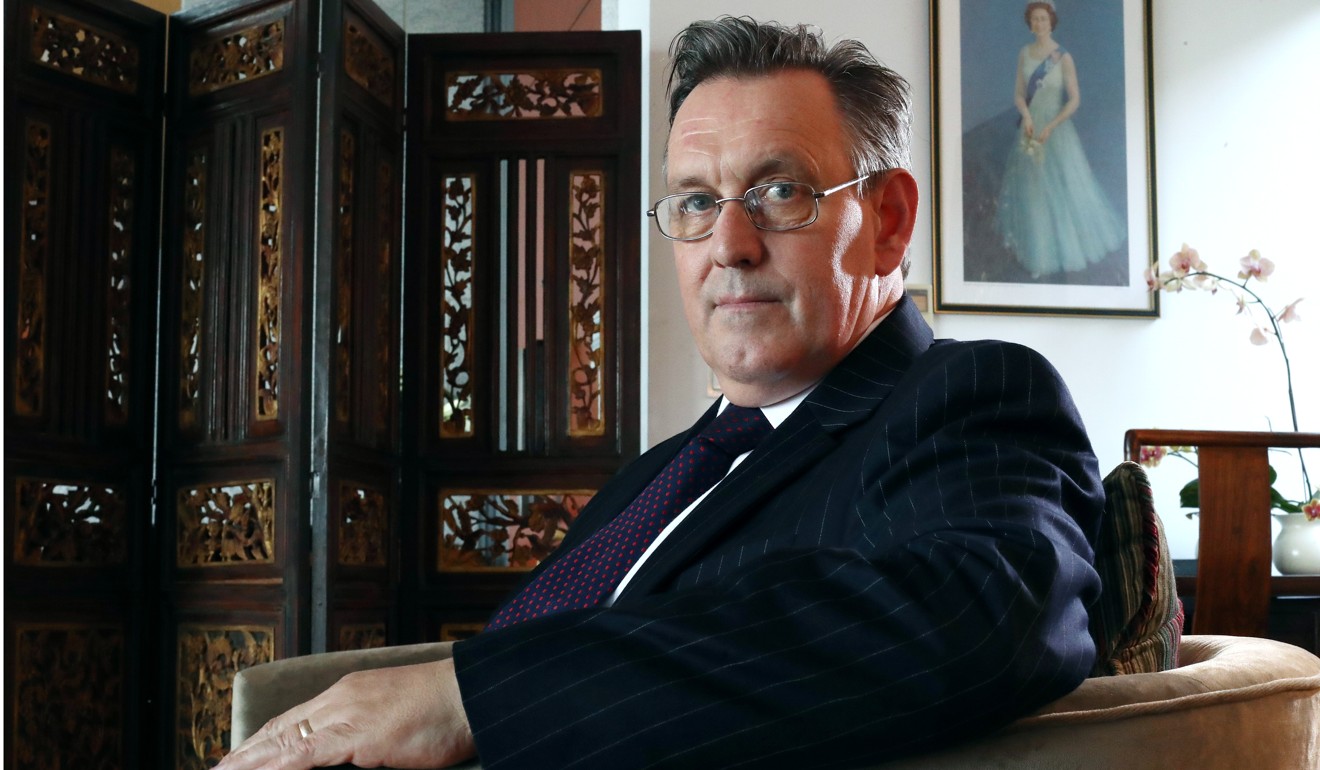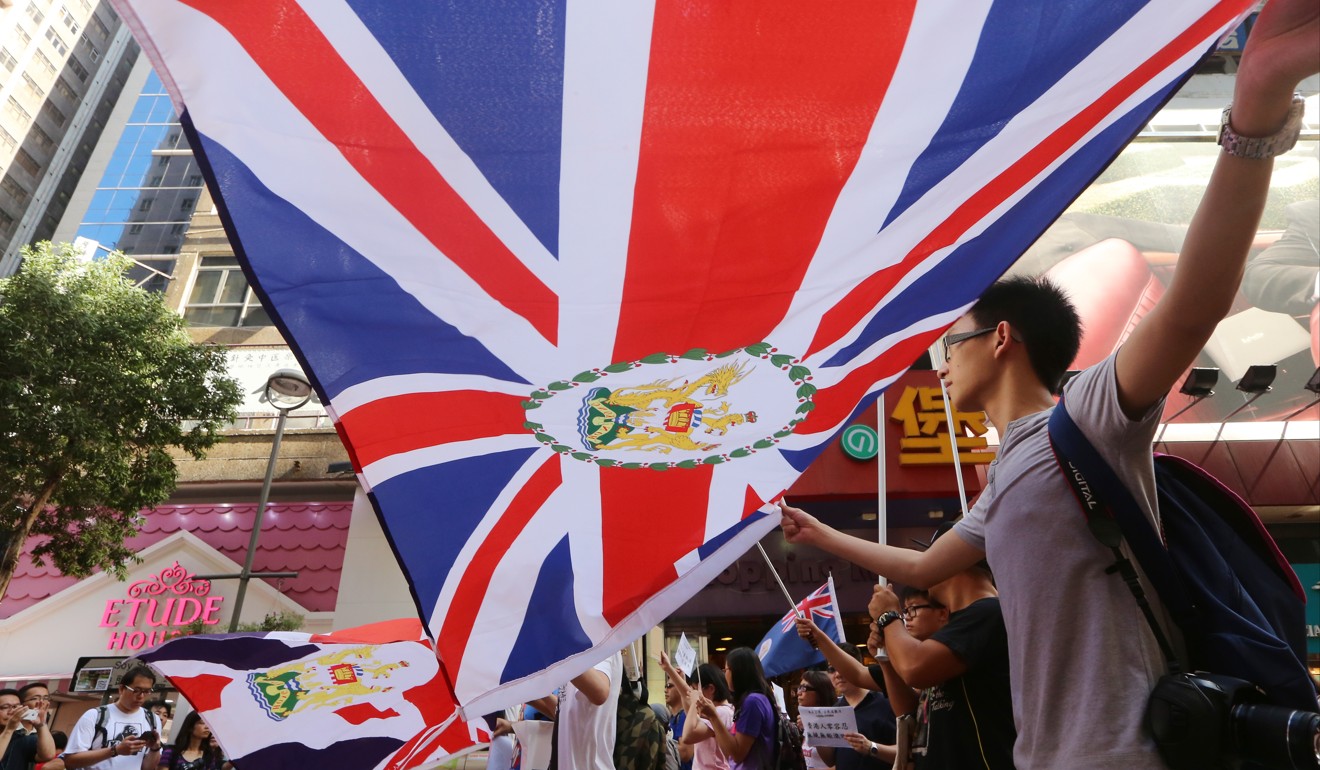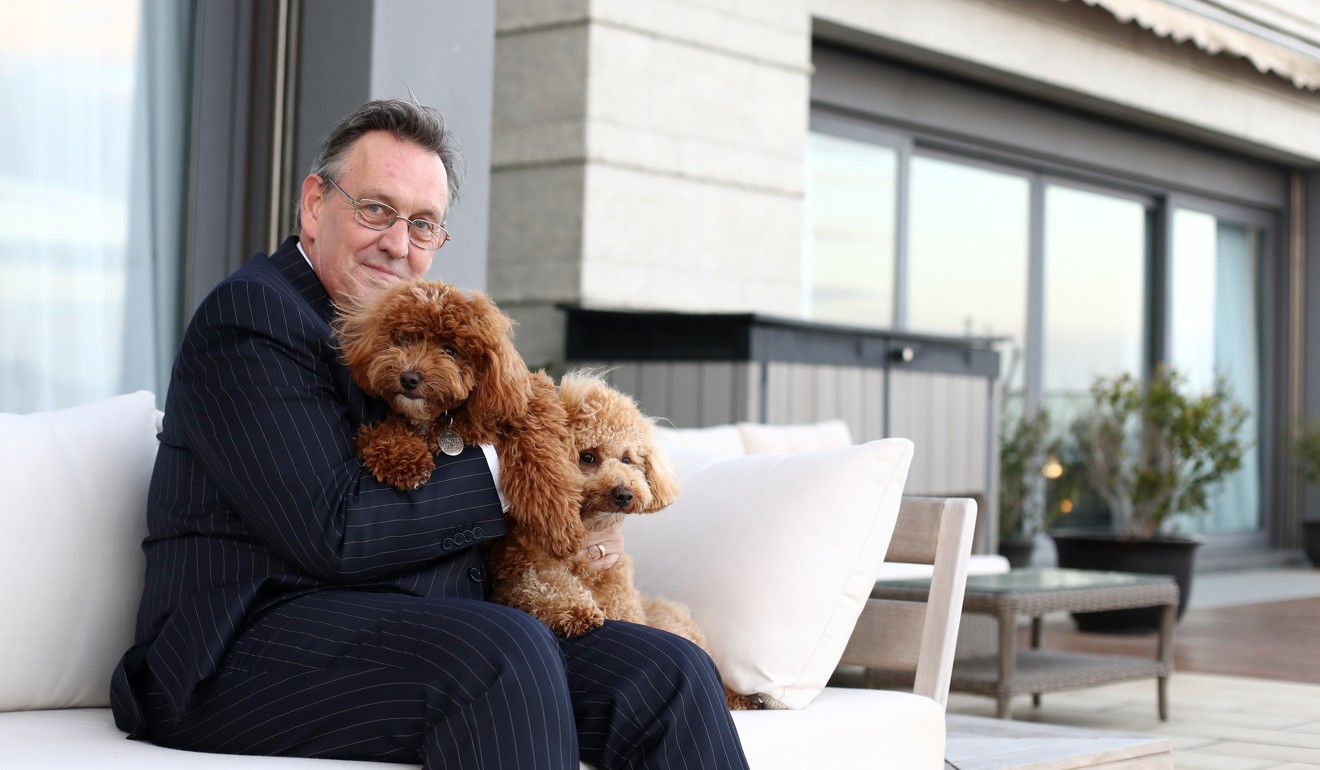
Exclusive | Britain looks to forge closer ties to Hong Kong amid EU exit with biggest innovation festival
Consul general in city Andrew Heyn touts ‘remarkably similar’ aims of two economies concerning innovation, technology, research and development
Britain is forging closer ties with Hong Kong as it prepares for life outside the European Union, the country’s consul general in the city says.
Andrew Heyn said the two economies had “remarkably similar” aims concerning innovation, technology, research and development.
Britain’s biggest trade event of the year, the GREAT Festival of Innovation, will take place in Hong Kong in March. Meanwhile a “strategic dialogue” between the two governments was ongoing, seeking to reduce trade barriers and develop joint initiatives, Heyn said.
“We are now looking into how we can work together on building links in the design, innovation and cultural fields, to deepen the relationships between UK institutions and Hong Kong institutions and companies and governments,” he said.
Britain will continue to speak up for Hong Kong, consul general vows
Britain’s departure from the European Union, scheduled for next year, and its consequent ability to strike its own trade deals was one factor driving these initiatives. Another was a recognition that Britain and Hong Kong had much in common, the consul general added.

Both economies were open, heavily reliant on trade, and “looking to build on huge traditional strengths [while] evolving very fast into modern economies”, he said.
Heyn said there was a striking similarity between Hong Kong leader Carrie Lam Cheng Yuet-ngor’s policy address and Britain’s industrial strategy, both focusing on innovation, the knowledge economy, incentives for research and development and cutting-edge technology.
Who gained the most from Hong Kong’s colonial era: Britain, China or the city?
Initiatives involving British design schools and museums, among others, were under discussion and announcements were likely to be made at the festival, he revealed.
Heyn was keen to highlight Britain’s continuing influence in the world, which he described as his hobbyhorse.

“There have been some press articles here, [suggesting] the UK will suffer a major loss of influence as a result of a decision to leave the EU, which I find absolutely absurd,” he said.
“If you look at the hard power side, we are a permanent member of the [United Nations] Security Council, we are in pretty much every political organisation – G7, G20, Nato, not to mention the Commonwealth. We are still intending to have a very close relationship with the European Union post-Brexit,” he said.
Can a post-Brexit Britain face up to the legacy of its lost empire?
Heyn also pointed to the strength of the British military, the country’s aid programme, which he said was the second biggest in the world, the size of its economy and the appeal of the UK’s schools and universities.
“Most countries would give their right arm for that amount of influence,” he said.
Since Britain voted to leave the EU in 2016, there had been an increase of almost 5 per cent in the number of Hong Kong students heading to the UK, Heyn said.

Last year, delays in processing student visas held back the arrival of some from Hong Kong and prompted complaints. Heyn said the problem had been resolved although the test would come with the next spike in applications.
“At a personal level I spoke with the visa policy and operational people in the UK. They took me through the measures that are in place now and they all look absolutely spot on,” Heyn said.
Moves were under way to introduce paperless visas, in a year or two, which would mean students no longer needing to send their passports away, he added.
Has Britain become a completely useless country these days?
Heyn said he was struck by the “two-way street of affection and interest and connections between the UK and Hong Kong”.
“The welcome my family and I have had here has been amazing.”
He was not troubled by activists waving British flags, or other flags, saying this was part of Hong Kong’s freedom of expression.
Heyn tries to swim each day in the infinity pool at the consul general’s residence on The Peak, which provides a sweeping view of Hong Kong. As for the city’s food, Heyn said he had eaten too much of it.
The biggest surprise for him had been the city’s open spaces and relatively quiet beaches. He has two rescue dogs, acquired in Hong Kong, called Bailey (after the alcoholic drink Baileys Irish Cream, because of the dog’s similar colour) and Ginger.

